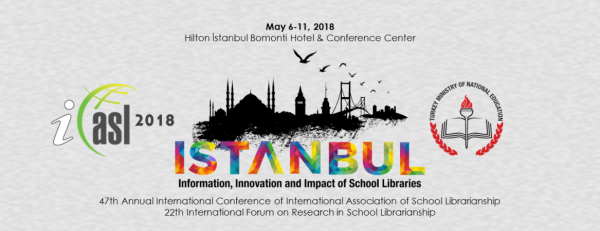Information ethics: why and how we teach the subject (Turkey)
DOI:
https://doi.org/10.29173/iasl7131Keywords:
information ethics, school libraries, LIS and TurkeyAbstract
School librarians have always strived to teach information ethics to students. The importance of conveying the concept of information ethics to students has become critical within the overwhelming effect of data and information flow. In an age of massive information flow we need to address the issues related to that subject: ethics vs. wrongdoing, propoganda vs. accuracy, bias vs. neutrality, prejudice vs. objectivity, self opinionatedness vs. flexibility, fiction vs. documentary, fact vs. opinion.
Turkish communities largely depend on oral culture. The codes of a written culture maybe unknown to some part of the population. In Turkey generally school librarians are not expected to teach. Most schools may not even have a certified librarian. Those who happen to work at schools are not expected to have a teaching certificate. Teachers at schools who speciliaze on subjects may teach about ethics, in case the issue is in question. Primary years programme has scheduled the subject Thinking in education which involves a chapter on citizenship and democracy education; the subject is offered as a elective. High school grades 10 and 11 will study philosphy but Being, Ethics, Art and Religion topics are undervalued. We as school librarians can fill in the gaps. We need to be role models in teaching media literacy, academic honesty and integrity, and above all the culture of information. Collaboration with teachers is a necessity, teaching information ethics related to the student lives, with direct examples drawn from their life- experiences are very important. If we teach the subject in a dull way, with irrelevant examples it makes no sense to them and they can easily disconnect. We need to adddress the issue of using text online, voice call, images and videos, the differences and similarities. We need to be information curators for our communities.




